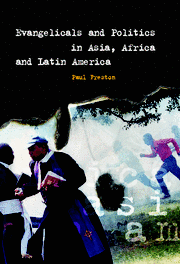Summary
If the study of evangelical politics takes serious account of the social base of the church, it must give priority to two groups in India's diverse population: the Dalits and the tribals, or in official terminology, Scheduled Castes and Scheduled Tribes. The Dalits (‘untouchables’) are important for evangelical politics as the majority of Christians, and tribal Christians are important as a majority of the total population in a few states.
Two contemporary questions are also relevant: the rise of Hindu nationalism, eroding the secular state created at independence; and economic liberalisation since 1991, with its accompanying social challenges and opportunities.
Webster's The Dalit Christians (1992) surveys the history of the Dalit political movement, stressing its origins in the so-called ‘mass movements’ of conversion to Protestantism by untouchables, mainly between the 1860s and the 1930s. These were localised grass-roots movements, initiated and led by Dalits, with foreign missionaries playing a secondary and often hesitantly supportive role. ‘The history of Christianity in India became inextricably intertwined with the history of the Dalit movement’, concludes Webster (1992: 39), an only slightly reductionist viewpoint.
Although mobility and change of status was a motivation for conversion, and was the social hope of the missionaries, only a minority achieved it. For all the personally significant transformations (recovery of dignity, overcoming of spiritual fear, etc.), not even large-scale conversion could overturn the caste system and the agrarian system (ibid.: 70).
- Type
- Chapter
- Information
- Publisher: Cambridge University PressPrint publication year: 2001



